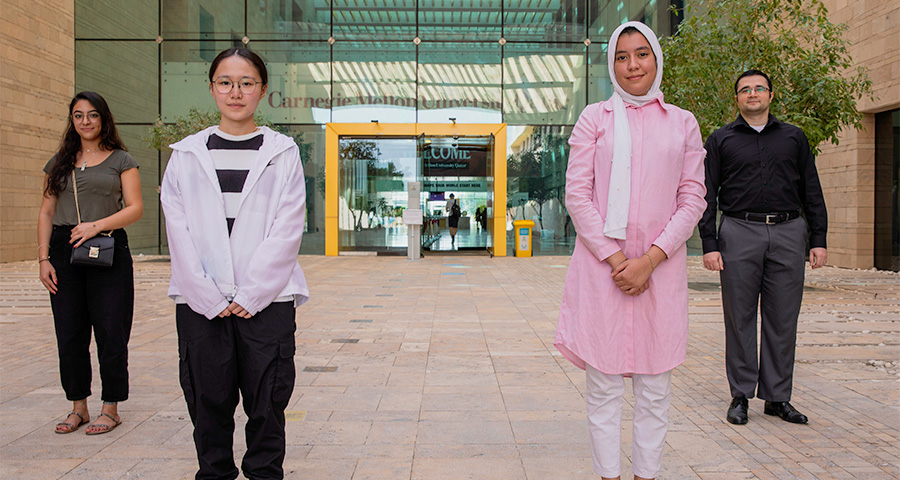
Business administration students publish book chapter on COVID-19 recession
Three business administration students at Carnegie Mellon University in Qatar (CMU-Q), a Qatar Foundation partner university, have published a book chapter on the impact of the COVID-19 recession. During their sophomore year, Lojaein Galal, Yan (Daisy) Ru, and Ihsane Sadiki, now in their third year of studies, researched how different countries recovered from past economic recessions. They applied their findings to demographic data from the United States during the COVID-19 pandemic.
Their work appears as the first chapter in the book, Current Studies on Employment and Unemployment, edited by Süleyman Uğurlu and published by Gazi Kitabevi.
Veli Safak, assistant teaching professor of economics, was the students’ advisor and is a co-author of the chapter. He notes that students at CMU-Q are particularly well-suited for this type of research.
“Beginning from the first year of study, students receive a data-oriented and quantitative education. They learn how to process large datasets and derive insights,” says Safak.
Safak, who teaches the class, Principles of Macroeconomics, notes that in that class alone, students prepare reports on Qatar’s labor market and economic activity, the international trade profile of Qatar, smart city technologies, and major economic recessions.
“We have a diverse student body, which gives our students a big advantage when doing macroeconomics research. Working together, students can access information in different languages, understanding how different countries respond to economic stressors.”
During their research, the students found that the COVID-19 recession is different from previous recessions in many ways, which has affected demographics groups differently. For instance, although there were widespread lockdown measures, in many industries employees were able to work remotely. Other sectors, such as service and hospitality, experienced much more significant unemployment rates. Given the demographic make-up of the workers in these sectors, the pandemic has affected younger workers, women, those without college degrees, and African American and American Indian groups more severely than others.
The students recommend a demographically targeted response to prevent deepening the inequities between the groups. They also noted that although the recession is getting better in some places, COVID-19 has affected economies around the world. True recovery from the COVID-19 recession will be on a global level, they said.
